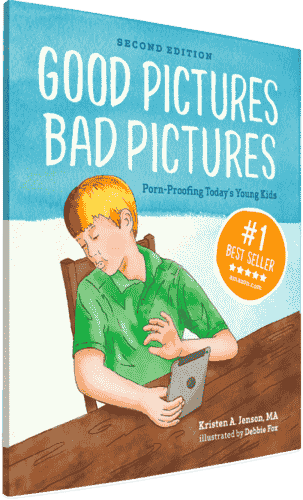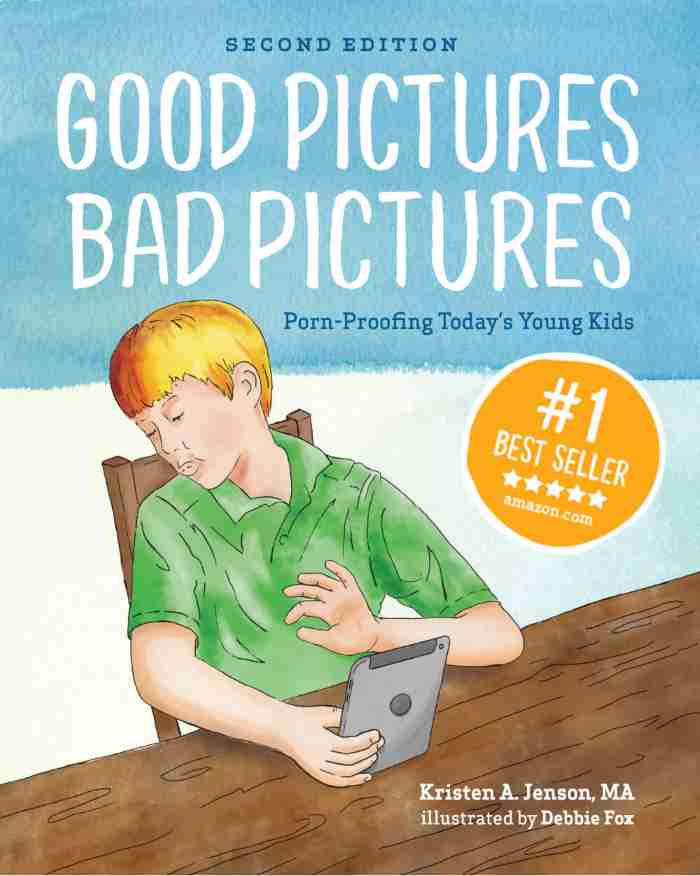
Help Kids Reject Pornography: The Surprising Benefit of Shared Memories
Can holiday traditions help kids reject pornography? Absolutely! Especially when those traditions connect kids to their family's past.
I’d like to share a tradition that has become the highlight of our family Christmas celebrations. It was started by my parents and my children say it’s what they look forward to most (after opening presents, of course!).

The gift of memories
In 2010 my parents announced that they didn't want to receive any presents under the tree. Instead they requested my three siblings and I each write a favorite childhood memory that could be read aloud on Christmas Day. As dutiful children we obliged.
At the time, none us understood what a gift this would become for the entire family (I may have even grumbled at first). My mother admits she came up with the idea for practical reasons. She was looking for a way to simplify gift giving as families were expanding and cash was tight for many. Now she claims it ranks as one of her more brilliant ideas.
In this post I’m going to show how sharing family memories actually supports the effort to help kids reject pornography. It does this by:
- Building up family relationships
- Focusing on our humanity
- Helping to shape personal identity
Shared memories build up family relationships
Recently, I asked family members to describe what they enjoy most about our Christmas tradition of giving memories. Their answers confirm how nourishing this experience can be to family relationships.
Grandpa says receiving a memory is so much richer than receiving a physical gift.
“Each year I’m thrilled with the reminiscence of experiences my children have had. I get such warm feelings as the stories are read out loud. I believe as we’ve repeated the ritual each year it has created a stronger bond among all of us.”
Grandma says the memories are now a cherished family document,
“The stories give us a whole new way to share our family history. I keep them in a binder and read them every now and then. There’s nothing chronological about it. It's just stuff that comes from the heart.”
And one of the grandchildren says the tradition of sharing memories at Christmas is “like a warm hug. It’s as comforting as playing catch with your dad.”
In contrast, everything about pornography goes against the notion of family and togetherness. So when we make a concerted effort to help kids see the value in family relationships we are also able to help kids reject pornography.
Shared memories show our humanity
The stories we share each Christmas are simple recollections from vacations, first dates, car troubles, discovered passions, and even lost dreams (I never got my puppy, and my brother never became a Canadian Mountie). But as our kids listen, they are captivated by the awesome discovery that mom or dad experienced real fun, adventure and challenges in their youth, just like they do now!
In an instant the generation gap is filled. We become more relatable to one another. Children discover that mom and dad are human! And believe it or not, discovering that parents have thoughts, feelings and emotions is an incredible tool to help kids reject pornography!
Think back to our post, The #1 reasons porn is bad. In it we learned from Matt Fradd that Porn teaches its viewers to commodify, use and discard people! In fact, porn treats people as less than human!
To help kids reject pornography we need to use every opportunity to show children how to feel compassion for other human beings (even parents). Notice that one of the key strategies kids learn from the best-selling book, Good Pictures Bad Pictures: Porn-Proofing Today’s Young Kids is to consider how others should be treated:
“Watching pornography can lead you to believe that people are objects to use instead of real human beings with feelings. We know that everyone has feelings and wants to be treated with kindness, so that’s one more way pornography lies to people who look at it.”
[[CTA]]
Shared memories shape identity
Developmental psychologist Dr. Robyn Fivush explains that when kids have the opportunity to relive intergenerational experiences within their own family, it shapes identity and leads to greater self-esteem (especially in adolescence).
One year my brother recounted this incredible story of his first roadside car repair:
At age 17 and many miles from home he found himself on the freeway in stop-and-go traffic. As it happens, when the car in front of him stopped he didn’t. (He claims the pavement was to blame —the jury's still out!) Fortunately the lead car was relatively unaffected by the collision. But the one he was driving suffered a crumpled front end and leaky radiator.
After being towed to an emergency exit he found the payphone and called home. These are the instructions he got from dad (who obviously considered this more of a puzzle to solve then a transportation setback) :
- A new (scrap) radiator and tools had been dispatched and would arrive in another vehicle travelling to the same destination
- In the meantime my brother would ask the tow truck driver to attach a winch to the bumper in order to pull out the curled front end.
- Now with clear access under the hood, my brother would install the new radiator and carry on to his destination (after all, it made no sense to miss out on a good dance!).
We all listened in awe as our uncle and brother detailed this experience. (How did he do it without the use of cellphone or instructional video, were the questions most on our minds!)
And though we were not there, we all take some credit for the achievement now. Why wouldn’t we? It’s an awesome story! And because he shared the memory with us, it now belongs to our family narrative.
This sense of belonging seems almost magical. Fivush explains that even when family members were absent from an event, they still make “strong connections between second-hand family memories and their own developing sense of identity,”
Imagine what an asset this is for kids growing up in age where unfiltered information comes at them from every direction. Having a strong sense of identity can help kids reject pornography.
Share memories (all year long) to help kids reject pornography
My family and I love our Christmas tradition! But sharing memories needn’t be exclusive to holiday time. Not to mention, the memories shared don’t have to be restricted to happy moments or personal triumphs.
Fivush says that when done carefully children benefit greatly when parents open up about their more vulnerable experiences. Challenging memories may become a model for helping kids overcome their own adversity —or to help kids reject pornography!
“Adolescents who made links to themselves in these stories, who explicitly said they learned something about themselves, or that they learned a valuable lesson from the stories, had higher levels of self-esteem and a higher sense of autonomy, purpose and meaning in life.”
Tools to help you get started
At Protect Young Minds we always advocate for direct and open conversations with kids about the harms of pornography. But we also recognize that parents need to create safe places to talk about important things (like pornography). Recounting shared memories is a surprisingly easy way to do just that!



Good Pictures Bad Pictures
"I really like the no-shame approach the author takes. It's so much more than just 'don't watch or look at porn.' It gave my children a real understanding about the brain and its natural response to pornography, how it can affect you if you look at it, and how to be prepared when you do come across it (since, let's face it... it's gonna happen at some point)." -Amazon Review by D.O.







